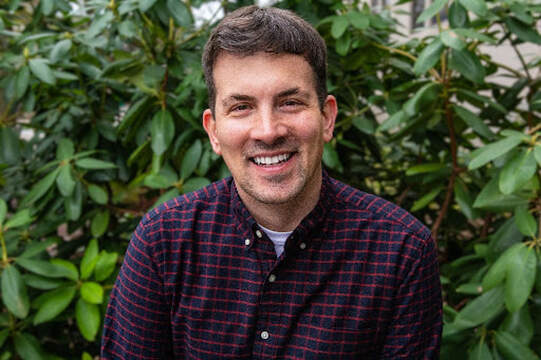By Mary Napoli and Angela WisemanEvery other year, the Children’s Literature Assembly recognizes the work of one early career individual who shows extraordinary promise as a researcher and leader in the field of children’s literature. In anticipation of the 2023 award cycle, we present reflections from Dr. Jon Wargo, Assistant Professor and Teacher Educator in the Lynch School of Education and Human Development at Boston College. Dr. Wargo, who was the 2021 recipient of the Early Career Award, offers insights into researching and studying children’s literature. In what way has children’s literature shaped or affected your research?Children’s and Young adult literature is and remains a central aspect of my research. Whether examining how young readers remediate responses to children’s texts or tracing how queer youth – as a concept – is discursively constructed through literary discussions featuring LGBTQ+ texts, children’s and young adult literature is not only a personal area of teaching but a scholarly avenue I seek to contribute to.
What’s your favorite children’s picturebook and why?I have a complicated response to this question. When I was little, my mom would read me Goodnight Moon before bed. As I grew older, she (quite literally!) cut, hacked, and edited the Goodnight Moon book into a revised Goodnight Jon text. My mom passed away in January of this year. This book, “Goodnight Jon,” is a constant memory of her and a keepsake I will forever cherish.
What advice would you have for early career scholars?My advice is two-fold. First, I encourage early career folks to write, read, and persist. Although I am not a “write every day” scholar, I write for significant amounts of time each week. Much of my inspiration for writing comes from reading. I regularly download and read 1-2 articles before writing sessions to feel inspired by ideas and language. Second, I would add that if provided with the opportunity, make your teaching a central part of your research agenda. As a former public school teacher, much of what I was interested in examining through my scholarship was located in personal problems of practice encountered as an early years educator. Now, as a teacher educator, I regularly use the classroom space as a place of inquiry.
What are your future directions for literacy research, including ways of incorporating children’s literature?Currently, two research projects take up children’s and youth literature as a central focus. First, in a project examining the “(il)logics of adolescence,” my doctoral student (Kyle Smith) and I are investigating how undergraduates in a youth media and literature course discursively construct queer childhoods through reading and responding to LGBTQ+ literature. In a second project, I am tracing young children’s play(giarism) of popular children’s texts (e.g., Mo Willems' picturebooks) and examining what, if anything, they may teach us about issues of genre, originality, and emergent literacy.
What children’s literature scholar has influenced your work? Explain.For me, both because of where I went to graduate school (Michigan State University) and also because of his impressive scholarly trajectory, Dr. Thomas Crisp is and remains a huge influence on my work. As a queer cisgender teacher educator, seeing someone ask critical questions about gender, sexuality, and genre has been so important. From his earliest work on Rainbow Boys and Boy Meets Boy to his latest collaborations focusing on the form of non-fiction, Tom is in a league of his own! I would also say that many of my junior scholar colleagues in the field (e.g., Drs. Josh Coleman, Angel Matos, Stephanie Toliver) are huge influences on my thinking. We are thankful for Dr. Wargo’s stories, perspectives and wisdom! As the field of children’s literature continues to thrive with an extensive body of research to support our inquiries and pedagogical approaches, we encourage early-career scholars to apply for the 2023 cycle. Stay tuned for more information on the CLA blog and website! Mary Napoli is a former editor of The Journal of Children's Literature and is co-chair of the 2023 Early Career Award Committee. She is an associate professor of education and reading at Penn State University Harrisburg. Angela Wiseman is a CLA Board Member and is co-chair of the 2023 Early Career Award Committee. She is an associate professor of literacy education at North Carolina State University. Comments are closed.
|
Authors:
|
CLA
About CLA
|
Journal of Children's Literature
Write for JCL
|
ResourcesCLA-sponsored NCTE Position Statements
|
Members-Only Content
CLA Video Library
|
© COPYRIGHT 2018.
ALL RIGHTS RESERVED |


 RSS Feed
RSS Feed